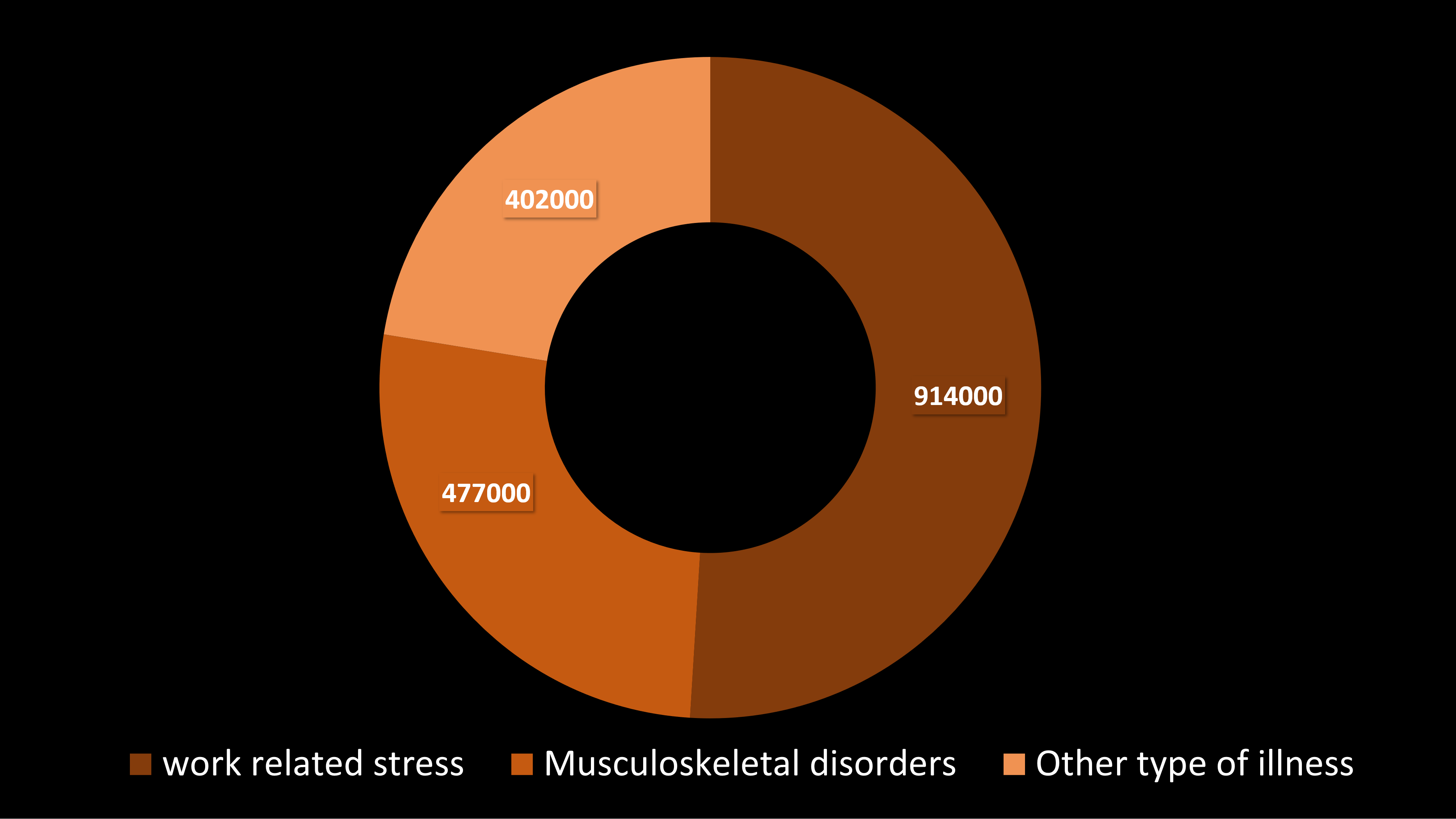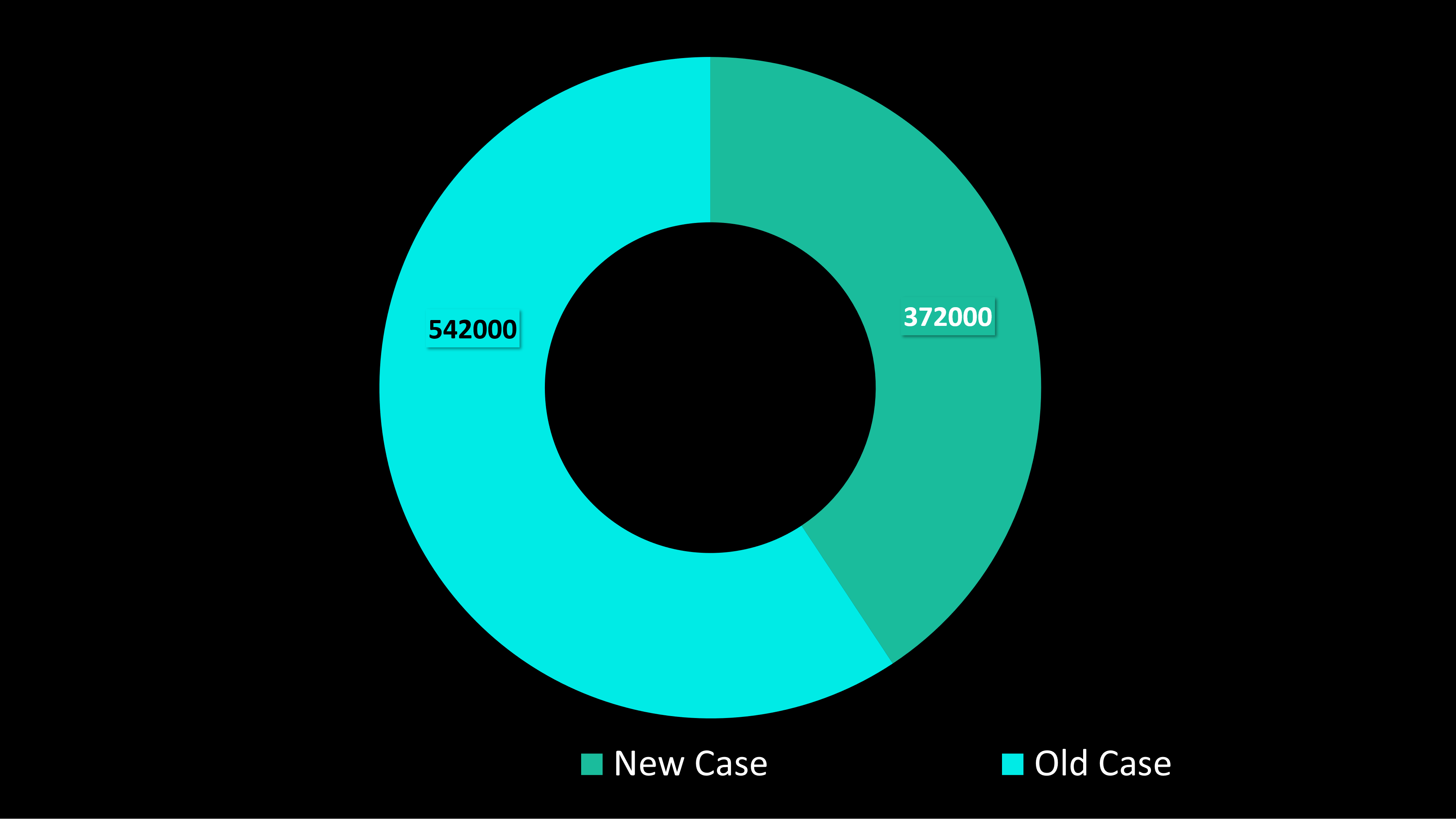
No Time to Read?
Let’s Explore the Blog Together to Know What’s Inside in 5 min summary video
The adverse reaction when excessive pressures arise, including placing other types of demands, Usually occurs with the presence of “losing control of a particular situation” feeling in the workplace, that in turn makes the individual no longer feeling ability to cope with those demands Although some pressures can be useful, like when leading to improved performance or achieving vital missions within a time frame, too much, prolonged pressure will cause both physical and mental ill health, such as high blood pressure, peptic ulcers, skin disorders, and depression. So kindly distinguish between pressure, which can ‘buzz’ and be a motivating factor, and stress, which can occur when this pressure becomes excessive.
a) Statistics
Every Year in United Kingdom Millions of Working days have been lost due to stress, depression and anxietywhen people report that they were suffering from workrelated stress at a level that was making them ill
2005/2006

11 Million
LOST WORKING DAYS

500,000
REPORTING PEOPLE
2010/2011

12.8 Million
LOST WORKING DAYS

530,000
REPORTING PEOPLE
2021/2022

17 Million
LOST WORKING DAYS

914,000
REPORTING PEOPLE
Work-related Stress by Gender
in 2021/22
Male vs Female
- Proportionately, cases of work-related stress occurred most commonly among the 25 – 54 age group.
- Women suffered higher rates of stress disorders than men.

Work-related ill health
in 2021/22
Total 1,793,000 Suffering Worker

Work-related stress
in 2021/22
Total 914,000 Suffering Worker

HSE research in 2003 into offshore work found approximately 70% of common work-related stressors are also potential root causes of accidents when they were caused by human error.
Comments:
- The HSE has estimated that work-related stress costs society around £3.8 billion a year.
- The overall situation seems statistically not to be improving year on year.
- This has been accompanied by an increase in civil claims resulting from stress at work.
- About 1 in 7 people say that they find their work either very or extremely stressful.
Cost of Stress

3.8 Billion
POUND A YEAR
b) Reasons to Manage Work-Related Stress
The legal and Moral
Some laws and legislation require and impose duties on employers, as described in more detail in previous blogs, like the Management of Health and Safety at Work Regulations 1999 to assess the risk of stress-related ill health arising from work activities and the Health and Safety at Work etc. Act 1974 to take measures to control that risk. So, organizations shall carry out a suitable and sufficient risk assessment for stress and take action to tackle any problems identified by that risk assessment. It is also good morality to understand links between stress and physical effects such as heart disease, back pain, headaches, disturbances, or various minor illnesses.
Psychological effects such as anxiety and depression, loss of concentration, and poor decision-making that in turn can lead to social withdrawal, aggressive behavior, alcohol and drug abuse, eating disorders, and working long hours.
Financial
From statistics, you can see the impact work-related stress could have on a work group. For example, in 2021–2022, those 17 million working days lost by colleagues added to the workload of the rest of the team. So, logically, you can highlight adverse effects for organizations in the form of:
- Low employee commitment to work;
- Reduce staff performance and productivity;
- Increased number of accidents by human error;
- Staff turnover and intention to leave;
- Low attendance levels; staff recruitment and retention;
Which in turn can lead to customer dissatisfaction; bad organizational image and reputation; high potential for litigation. Therefore, it is necessary to take action to manage the causes of stress in workplace to prevent or reduce the impact of these problems on organization and bring about business benefits.
Stay Alert – Don’t Get Hurt
– Safety Advisor
C) Reasons of Stress
It is normal for anyone of us to experience stress during life. We feel stress during an illness or the death of a close relative or friend, but luckily, we recover after the particular crisis has passed. Unfortunately, workplaces are frequently different because of other forms of stress that may last forever and continue to build up stress levels until the employee can no longer cope. So, if stress is not properly managed, it will lead to lower productivity and increased sickness absence, as shown in statistics. The basic workplace stressors are:
The Job
Boring or repetitive, unrealistic performance targets or insufficient training, job insecurity, workload, work patterns, and the work environment.
Individual Responsibility
Ill-defined roles and too much responsibility with too little power to influence the job outputs

Working Conditions
Cramped, dirty and untidy workplace; unsafe practices; lack of privacy or security; inadequate welfare facilities; threat of violence; excessive noise, vibration or heat; poor lighting; lack of flexibility in working hours to meet domestic requirements; and adverse weather conditions for those working outside
Support
This includes the encouragement, sponsorship and resources provided by the organization, line management and colleagues, receive adequate information and support from their colleagues and superiors
Role
Whether people understand their role within the organization and whether the organization ensures they do not have conflicting roles and employees understand their role and responsibilities
Management Attitudes
Poor communication, consultation or supervision, negative health and safety culture, lack of support in a crisis, employees does not get engaged when undergoing an organizational change
Relationships
Unhappy relationship between workers, bullying, sexual and racial harassment. Negative culture leads to unacceptable behavior.
Symptoms of stress
There are four groups of stress symptoms – Physical, behavioral, emotional and cognitive. Including chest pains, nausea and frequent colds. Consequently, eat less, probably bad habits like smoking and drinking alcohols in addition to nervous habits, unable to relax, become irritable and depressed. They may also have memory problems, be unable to concentrate and become very anxious. Stress victims experience a severe lack of control.








































